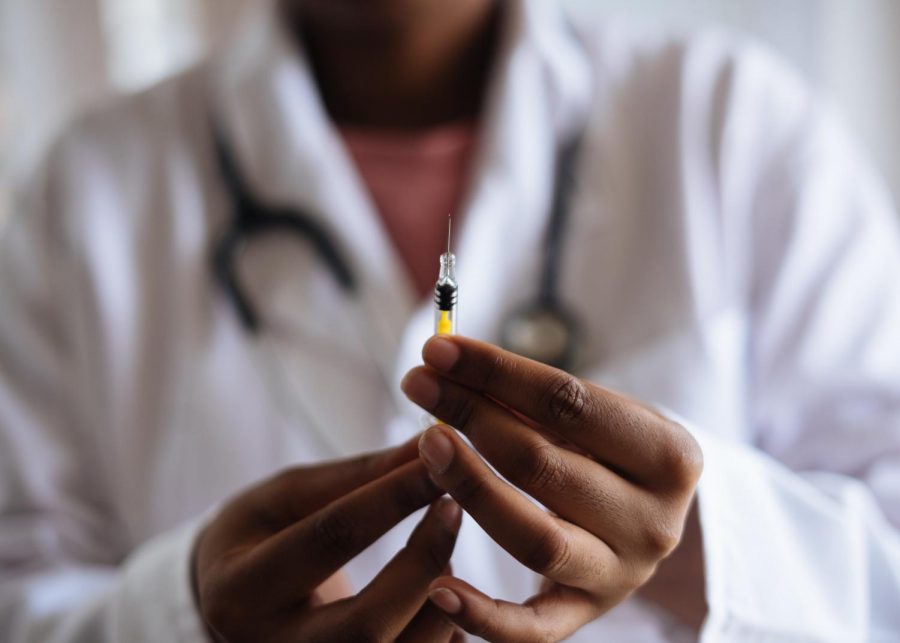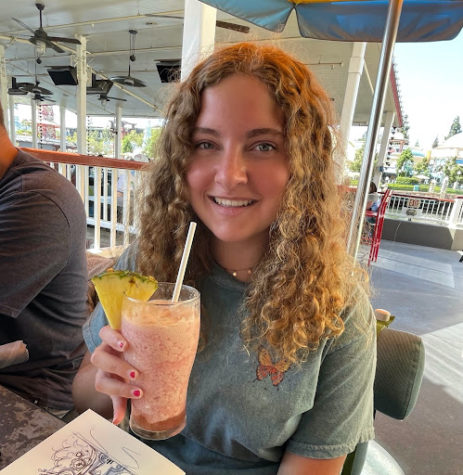Medical Companies Propose Promising Developments of COVID-19 Vaccine
May 15, 2020
As the world battles COVID-19, researchers are working to create an effective and affordable vaccine to battle the disease. As of April 15, 2020, researchers worldwide are studying more than 70 vaccines for COVID-19, while six COVID-19 vaccines already began human trials, according to the Pharmaceutical Research and Manufacturers of America (PhRMA).
The World Health Organization (WHO) reported May 11 that the confirmed coronavirus cases throughout the world rose to 4 million as various regions, including southern and midwestern states in the United States, began to experience the effects of the pandemic. In the May 11 report, the WHO documented more than 278,000 deaths. In North and South America alone, there are 1,702,451 cases with 101,874 deaths as of May 11.
April 23, President Trump expressed his interest in using Lysol and bleach to kill COVID-19 at a coronavirus press briefing.“Is there a way we could do something like that, like, injection inside or almost a cleaning? It would be interesting to check that. So, you’re going to have to use medical doctors for that, but it sounds interesting to me,” Trump said. Doctors immediately tried to dissuade people from taking the president’s suggestion of using disinfectants, which are highly toxic, as a cure. After quickly backtracking on the statement, saying that it was a “sarcastic” comment, companies continue to develop antivirals that protect against SARS-CoV-2, which is the virus responsible for the COVID-19 disease.
The WHO calls SARS-CoV-2 “severe acute respiratory syndrome coronavirus 2,” which causes the COVID-19 disease. Companies are fast-tracking the process of creating a cure by using preexisting drugs as a basis for the vaccine. “Past research on SARS and MERS vaccines has identified potential approaches,” the Mayo Clinic reported.
One such drug is remdesivir, which was developed ten years ago during the Ebola outbreak but failed clinical trials at the time. Beginning tests of remdesivir were not wholly positive, but more recent developments have shown that the drug decreases COVID-19 recovery from 15 days to 11 days, and Dr. Anthony Fauci, director of the National Institute of Allergy and Infectious Diseases, stated that remdesivir was successful in causing a “clear cut positive effect in diminishing time to recover.” Healthline reported May 1 that the Food and Drug Association (FDA) issued an emergency authorization of the use of remdesivir.
The medical company Johnson & Johnson emerged as a leader in virus testing, even claiming that they have found multiple potential candidates for a successful vaccine. “We are moving on an accelerated timeline toward Phase 1 human clinical trials at the latest by September 2020 and, supported by the global production capability that we are scaling up in parallel to this testing, we expect a vaccine could be ready for emergency use in early 2021,” Paul Stoffels, M.D., Vice Chairman of the Executive Committee and Chief Scientific Officer at Johnson & Johnson, said in a statement on the company website. They have partnered with the Biomedical Advanced Research and Development Authority (BARDA) to commit more than $1 billion to fund vaccine research, development, and testing. Confident in their vaccine, Johnson & Johnson is beginning to manufacture their leading vaccine candidate and will begin a clinical study in September. The company utilizes its state-of-the-art AdVac and PER.C6 technologies to quickly develop a COVID-19 vaccine faster than their competitors, including medical groups such as Amgen and Adaptive Biotechnologies, BioNTech and Pfizer, and Gilead Sciences, the company that is working with remdesivir.
According to the Mayo Clinic, three different kinds of vaccines, live, inactivated, and genetically engineered, are all in the works, but each has its own challenges. While live vaccines trigger the immune system to fight the disease, it is possible for these live viruses to be transmitted to an unvaccinated person. Inactivated vaccines also cause an immune system response, but require multiple doses, something that might not be available to all during this pandemic. Finally, genetically engineered vaccines are arguably the safest approach, since infectious viruses are not handled in the process, but these vaccines take longer to complete. Although researchers are looking to create genetically engineered vaccines, none have been licensed yet.
Even with research underway, there are doubts about how effective a potential vaccine will be. “I don’t think we’ll have [a vaccine] until at least 2021 because there is so much unknown about this virus and there are so many tests it has to go through to be sold, and then it will take a while for enough to be made a distributed to the population,” sophomore Frances Pope said.
Questions of what the world will look like once the pandemic is over are held by many who want to return to normal lives. “I think that coronavirus will change daily life permanently from the way we prepare for future disasters to how we interact on a daily basis,” Pope said. Life after the pandemic is largely unknown, and many speculate that society will not be completely ordinary once again. “The vaccine will allow us to get semi-back to normal, but I believe that wearing masks when you go to the grocery store will still be around for a while after a vaccine is made,” sophomore Erin Smith said.
As we wait for a vaccine, researchers are constantly working to understand the COVID-19 virus and adapt to combat it. Until a medication is available, officials are continuing to ask people to obey social-distancing guidelines to “flatten the curve” and await a cure.








